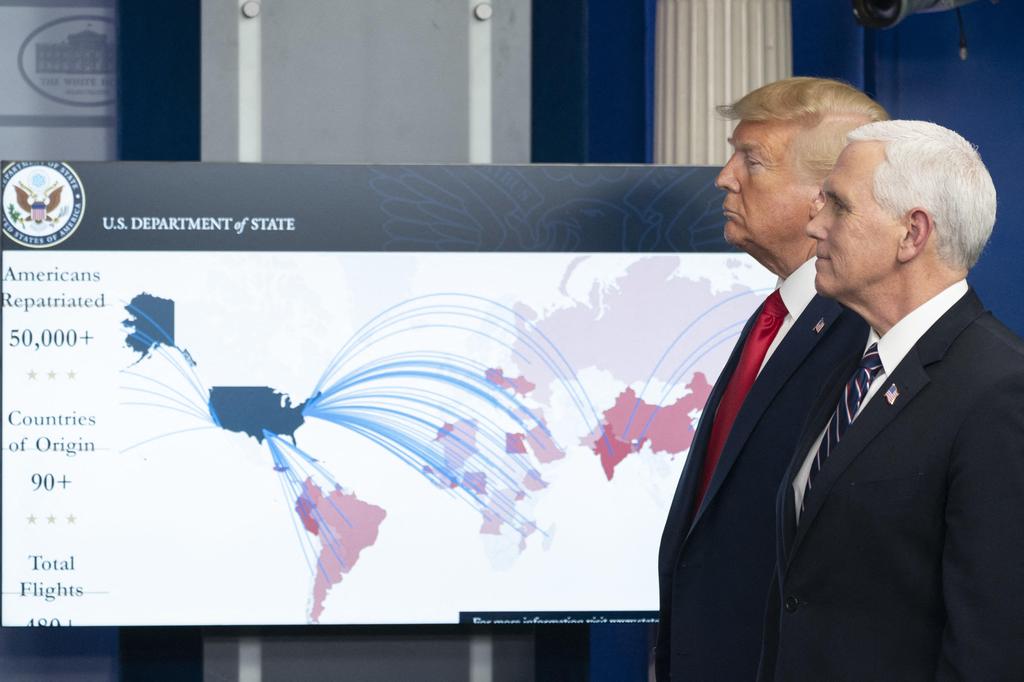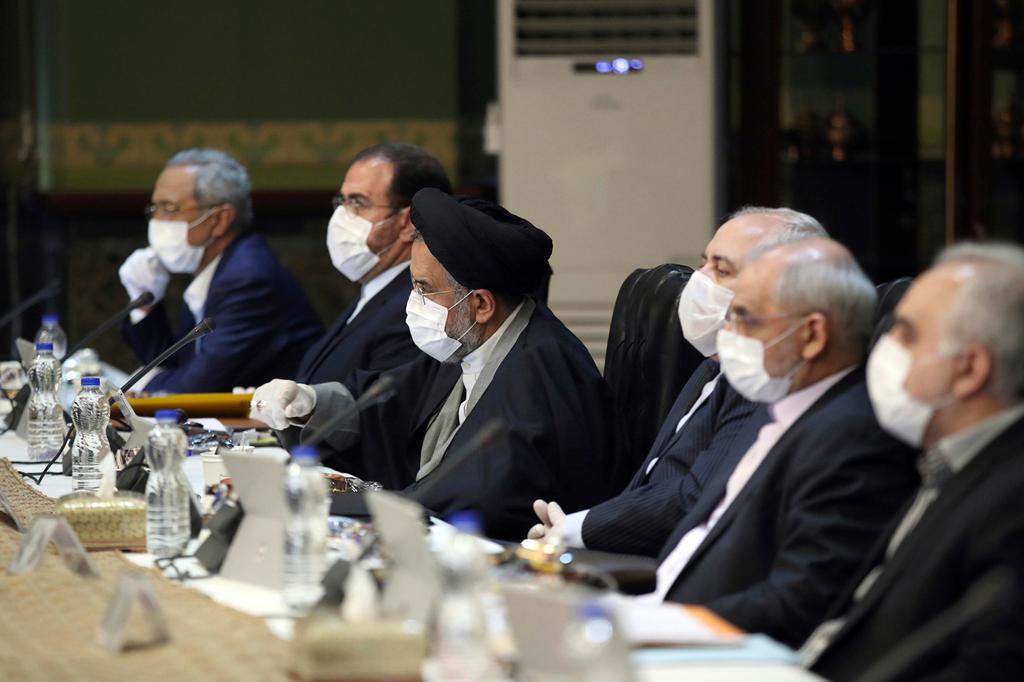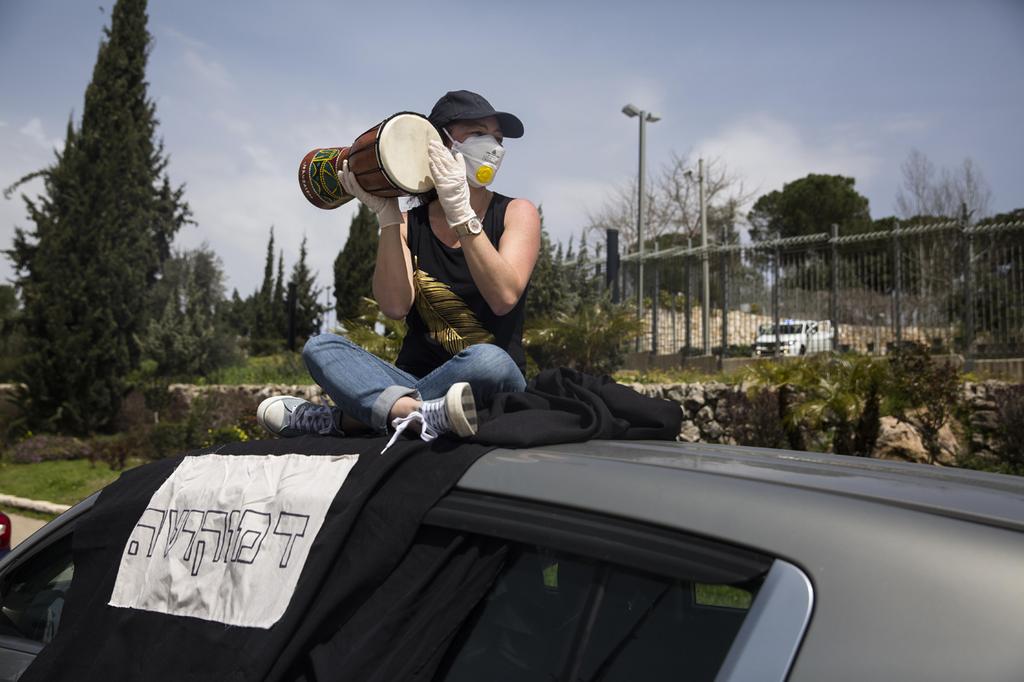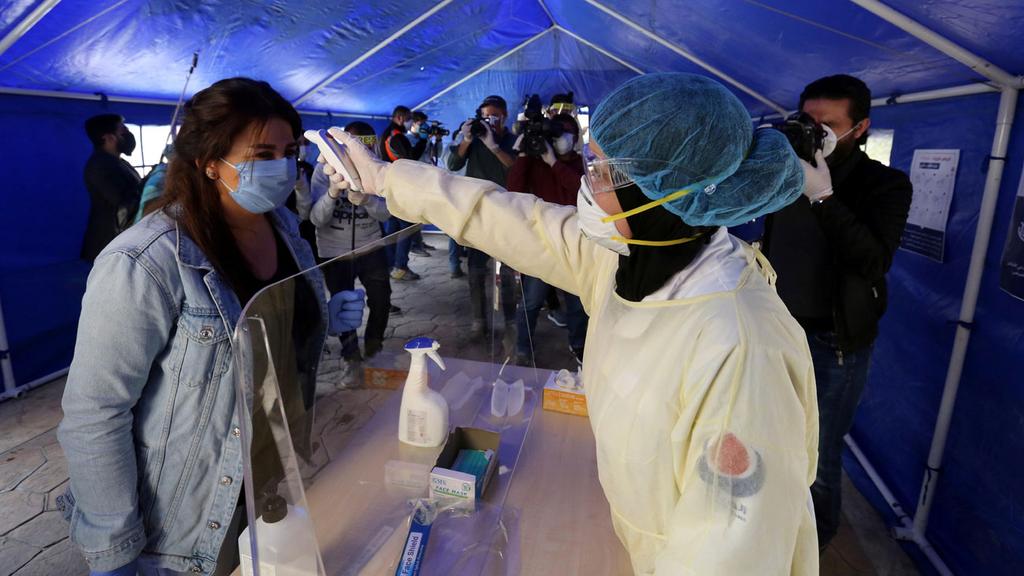Getting your Trinity Audio player ready...
There are those who believe the during times of trouble and adversity, the goodness of a person’s heart is revealed.
The truth is, however, that only if a person was good to begin with, will they in such times become better - and a bad person will only become worse.
4 View gallery


President Donald Trump and Vice President Mike Pence during a Washington press conference on coronavirus
(Photo: ABACA)
The same is true of politicians. As the coronavirus spread, we have seen them abuse the pandemic for their own political gains, even taking advantage of those who saw the danger of the virus as far greater than any political rivalry.
The first to use the virus as a weapon was U.S. President Donald Trump, who used it to defame China, referring to the pathogen as “the Chinese virus” in his official statements.
China responded by claiming that coronavirus was created in U.S. Army laboratories in Fort Detrick, Maryland and accidentally leaked in the wastewater there - resulting in more than 10,000 people suffering from strange symptoms all across Maryland on August 2019.
Trump also sought to gain a monopoly on finding a vaccine before China, which had quickly developed its own system for dealing with the outbreak.
When the U.S. president learned that a German company was developing a vaccine, he offered the company a whopping $1 billion to buy the rights to it, aiming to secure American control over the price on the international market.
In many countries rife with political turmoil, leaders have taken advantage of the virus to solidify their power. In the Arab world, it allowed for a crackdown in areas suffering from political unrest.
Iraq, for example, was in the throes of a wave of protests against government corruption that all stopped due to the coronavirus.
In Algeria, newly elected president Abdelmadjid Tebboune banned all gatherings and protests, effectively ending a wave of demonstrations that had been going on for more than a year.
In Lebanon, the politicization of the epidemic was used to form a government after a hard fought battle by political enemies.
Yet in Libya, both sides of the brutal civil war took advantage of the epidemic in order to declare a ceasefire.
And even in battle-scarred northern Syria, both sides of the almost decade-long civil war realized that their top priority should be fighting the epidemic and not each other.
In the Idlib region, the intensity of fighting has decreased, while the roads connecting the city of Deir ez-Zor were cut off in order to prevent movement of fighters.
But in the cold war between Saudi Arabia and Iran, the former used the virus as a convenient excuse to initiate an attack against Tehran.
4 View gallery


Iranian leaders wear masks against coronavirus during a government meeting
(Photo: AP, Office of the Iranian Presidency)
On March 10, the Saudi ministerial council condemned Iran's "irresponsible behavior" for allowing the citizens of the kingdom to cross into Iran without having their passports stamped, purely in order to mislead Saudi authorities.
According to the Saudis, Iran's actions present “a medical threat that threatens public peace and harms international efforts to fight the virus.”
The virus has also swayed Israeli politics. After Prime Minister Benjamin Netanyahu failed to secure a majority in the March 2 elections, he promoted the idea of forming a national unity government comprising his Likud party, the religious right and Blue & White - arguing it was crucial to fighting the coronavirus.
Not content with merely using the virus to advance the formation of a government headed by him, Netanyahu also used all the tools at his disposal to restrict the activity of the Knesset and the courts, thereby postponing his trial for fraud, bribery and breach of trust until May 24.
4 View gallery


An Israeli woman wearing mask and gloves against coronavirus protests the suspension of the Knesset in Jerusalem last month. The sign reads: 'Democracy'
(Photo: Getty Images)
Most seriously, Netanyahu bypassed the Knesset in order to impose electronic surveillance measures to track coronavirus patients in Israel.
The Shin Bet will monitor the patients, and keep the data for national security purposes, using surveillance techniques commonly used against people suspected of terrorism, and despite protests from opposition lawmakers, the move was approved without being ever being presented to the Knesset and without any judicial oversight.
There is no escaping the fact that the coronavirus has become an important political player in Israel, the Arab world and in many countries around the globe.
Dr. Ibrahim Nawar is an Egyptian economist. The original version of this article was published on the Al-Quds Al-Arabi website.


